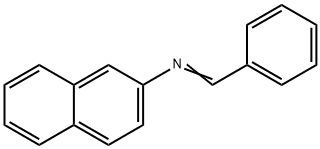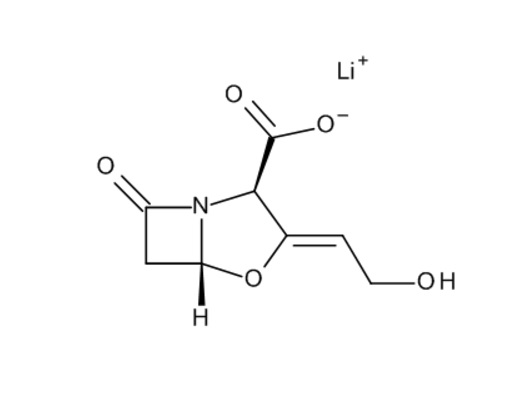N,N'-Bis(salicylidene)-1,3-propanediamine
Synonym(s):N,N′-Disalicylidene-1,3-diaminopropane;N,N′-Trimethylene-bis(salicylimine)
- CAS NO.:120-70-7
- Empirical Formula: C17H18N2O2
- Molecular Weight: 282.34
- MDL number: MFCD00002245
- EINECS: 204-418-6
- SAFETY DATA SHEET (SDS)
- Update Date: 2024-05-09 11:47:45

What is N,N'-Bis(salicylidene)-1,3-propanediamine?
Chemical properties
Light yellow to Yellow to Green powder to crystal
The Uses of N,N'-Bis(salicylidene)-1,3-propanediamine
N,N′-Bis(salicylidene)-1,3-propanediamine has been used in the synthesis of:
- new trinuclear heterometallic Cu(II)-Mn(II) complexes
- mononuclear nickel complex, NiL (LH2 = N,N′-bis(salicylidene)-1,3-diaminopropane)
What are the applications of Application
N, N'-bis(salicylidene)-1,3-propane diamine (SB-Salpr) could prepare a new Al3+ carbon paste ion selective electrode to quantify trace Aluminum. The bi-thioglycolate functionalized salpn linker could be further transformed into Cu-ICP nanoparticles. This linker could be synthesized through the functionalization of salpn (salpn = N, N'-Bis(salicylidene)-1,3-propanediamine) ligand with sodium thioglycolate[1–2].
General Description
N,N′-Bis(salicylidene)-1,3-propanediamine is a di-Schiff base ligand.
Synthesis
N,N'-Bis(salicylidene)-1,3-propanediamine is prepared by the reaction of 2-Hydroxybenzaldehyde and 1,3-diaminopropane. The specific synthesis steps are as follows:
General procedure: This Schiff base was prepared via a condensation reaction in EtOH under hydrothermal conditions using 2-hydroxy-benzaldehyde and 1,3-diaminopropane. 2-Hydroxy-benzaldehyde (0.02 mol, 2.44 g) was dissolved in 40 cm3 of warm EtOH, then 0.01 mol (0.74 g) of 1,3-diaminopropane was added to this solution and heated up to the boiling point. After cooling, yellow crystals were filtered and air-dried. Yield: 92-95%, mp 58 °C (determined by TG). Elemental Anal. Calc. for C17H18N2O2: C, 72.3; H, 6.43; N, 9.92. Found: C, 71.9; H, 6.45; N, 10.47%. λmax = 243 nm, ε = 7045 dm3 mol-1 cm-1 in DMSO, λmax = 242 nm, ε = 7865 dm3 mol-1 cm-1 in MeOH. IR (cm-1): νO-H 2627, νC-H(Ar) 3021-3019, νC-H(aliph) 2929-2862, νC=N 1629, νC=C(ring) 1608, νC-O(phenol) 1274-1151, δC-H(Ar) 762. 1H NMR in d6-DMSO: 13.51 (s) (O-H), 8.60 (s) (-CH=), 7.43 (d) (HAr), 7.32 (t) (HAr), 6.88 (t) (HAr), 3.68 (t) (N-CH2-), 2.01 (p) (-CH2-). 13C NMR in d6-DMSO: 166.6, 161.1, 132.7, 132.1, 119.1, 118.9 (CAr), 116.9 (-C=N), 58.5 (N-CH2-), 31.9 (-CH2-). m/z: 282 [M]+, 161 [HO-C6H4-CH=N-CH2-CH2-CH2]+, 148 [HO-C6H4-CH=N-CH2-CH2]+ (BP), 134 [HO-C6H4-CH=N-CH2]+, 120 [HO-C6H4-CH=N]+, 107 [HO-C6H4-CH2]+, 77 [C6H5]+.
References
[1] RAZIEH SANAVI KHOSHNOOD Toktam M C, Setareh Akbari. Determination of Aluminium by Potentiometry Using Carbon Paste Ion Selective Electrode Based on N,N’-bis(salicylidene)-1,3-Propanediamine Ligand[J]. Journal of Analytical Chemistry, 2022, 77 8: 1057-1061. DOI:10.1134/S1061934822080111.
[2] M. MOHAMMADIKISH, Zohreh Z. Coordination-induced formation of nanometer-scale infinite coordination polymer at room temperature and conversion to CuO nanoparticles[J]. Materials Research Express, 2018. DOI:10.1088/2053-1591/aab7b7.
Properties of N,N'-Bis(salicylidene)-1,3-propanediamine
| Melting point: | 51-53°C |
| Boiling point: | 466.4±40.0 °C(Predicted) |
| Density | 1.11±0.1 g/cm3(Predicted) |
| Flash point: | 113 °C |
| storage temp. | Sealed in dry,Room Temperature |
| solubility | almost transparency in Toluene |
| form | powder to crystal |
| pka | 12.55±0.50(Predicted) |
| color | Light yellow to Yellow to Green |
| BRN | 2057483 |
| InChI | InChI=1S/C17H18N2O2/c20-16-8-3-1-6-14(16)12-18-10-5-11-19-13-15-7-2-4-9-17(15)21/h1-4,6-9,12-13,20-21H,5,10-11H2 |
| CAS DataBase Reference | 120-70-7(CAS DataBase Reference) |
| EPA Substance Registry System | Phenol, 2,2'-[1,3-propanediylbis(nitrilomethylidyne)]bis- (120-70-7) |
Safety information for N,N'-Bis(salicylidene)-1,3-propanediamine
| Signal word | Warning |
| Pictogram(s) |
 Exclamation Mark Irritant GHS07 |
| GHS Hazard Statements |
H315:Skin corrosion/irritation H319:Serious eye damage/eye irritation |
| Precautionary Statement Codes |
P264:Wash hands thoroughly after handling. P264:Wash skin thouroughly after handling. P280:Wear protective gloves/protective clothing/eye protection/face protection. |
Computed Descriptors for N,N'-Bis(salicylidene)-1,3-propanediamine
| InChIKey | KLDZYURQCUYZBL-UHFFFAOYSA-N |
| SMILES | C(N=CC1=CC=CC=C1O)CCN=CC1=CC=CC=C1O |
New Products
4-AMINO-TETRAHYDRO-PYRAN-4-CARBOXYLIC ACID HCL 4-(Dimethylamino)tetrahydro-2H-pyran-4-carbonitrile 4-Aminotetrahydropyran-4-carbonitrile Hydrochloride (R)-3-Aminobutanenitrile Hydrochloride 3-((Dimethylamino)methyl)-5-methylhexan-2-one oxalate 1,4-Dioxa-8-azaspiro[4.5]decane 5-Bromo-2-nitropyridine Nimesulide BP Aceclofenac IP/BP/EP Diclofenac Sodium IP/BP/EP/USP Mefenamic Acid IP/BP/EP/USP Ornidazole IP Diclofenac Potassium THOMAIND PAPER PH 2.0 TO 4.5 1 BOX BUFFER CAPSULE PH 9.2 - 10 CAP SODIUM CHLORIDE 0.1N CVS ALLOXAN MONOHYDRATE 98% PLATINUM 0.5% ON 3 MM ALUMINA PELLETS (TYPE 73) LITHIUM AAS SOLUTION 2-Bromo-1-(bromomethyl)-3-chloro-5-nitrobenzene 2-Bromo-3-nitroaniline N-(3-Hydroxypropyl)-N-methylacetamide 3-Bromo-6-chloropyridazine 4-ethyl-3-nitrobenzoic acidRelated products of tetrahydrofuran








You may like
-
 N,N'-Bis(salicylidene)-1,3-propanediamine CAS 120-70-7View Details
N,N'-Bis(salicylidene)-1,3-propanediamine CAS 120-70-7View Details
120-70-7 -
 N,N'-Bis(salicylidene)-1,3-propanediamine 95% CAS 120-70-7View Details
N,N'-Bis(salicylidene)-1,3-propanediamine 95% CAS 120-70-7View Details
120-70-7 -
 N,N′-Bis(salicylidene)-1,3-propanediamine CAS 120-70-7View Details
N,N′-Bis(salicylidene)-1,3-propanediamine CAS 120-70-7View Details
120-70-7 -
 1823368-42-8 98%View Details
1823368-42-8 98%View Details
1823368-42-8 -
 2-(3-(tert-butyl)phenoxy)-2-methylpropanoic acid 1307449-08-6 98%View Details
2-(3-(tert-butyl)phenoxy)-2-methylpropanoic acid 1307449-08-6 98%View Details
1307449-08-6 -
 Ethyl 3-(furan-2-yl)-3-hydroxypropanoate 25408-95-1 98%View Details
Ethyl 3-(furan-2-yl)-3-hydroxypropanoate 25408-95-1 98%View Details
25408-95-1 -
 2-Chloro-5-fluoro-1-methoxy-3-methylbenzene 98%View Details
2-Chloro-5-fluoro-1-methoxy-3-methylbenzene 98%View Details
1805639-70-6 -
 Lithium ClavulanateView Details
Lithium ClavulanateView Details
61177-44-4